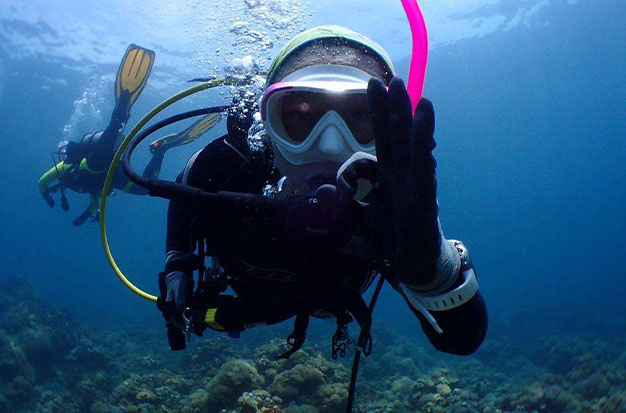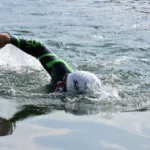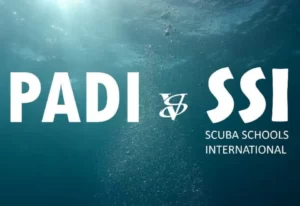
Is it safe for a pregnant woman to go scuba diving? The American College of Obstetricians and Gynecologists, the Divers Alert Network (DAN), and the majority of dive organizations all advise against diving while pregnant. The assumption that pregnancy and diving don’t mix, however, is not as easily explained.
In this post, we will explain all the details to you. Just read on.
Survey Results Of Scuba Diving While Pregnant
Women’s experiences scuba diving while pregnant have been the subject of a few ambiguous surveys. Although fetal deformation or miscarriages were occasionally reported, they weren’t always linked to scuba diving. In some cases, there were no adverse reactions reported at all. In1980, the Undersea Biomedical Research journal conducted a survey entitled “Scuba diving and fetal well-being,” which studied 208 women, including 109 who had dived during pregnancy. Among these, there was a 5.5% incidence of issues among the women who had dived, compared to the women who had not. It’s important to note, though, that diving cannot be definitively blamed for the problems, which could have been caused by a variety of unrelated factors.
It is believed that scuba diving during pregnancy may have harmful effects primarily on fetuses in the first and third trimesters. In the first trimester, the effects of oxygen concentrated by pressure could result in defects in the growing fetus, such as decreased weight, abnormal skull development, malformed limbs, and abnormal heart development. And while it can happen at any time, decompression sickness in the mother is especially dangerous during the third trimester because the fetus cannot filter out nitrogen bubbles through the lungs because its blood bypasses the lungs and oxygenates through the placenta.
Animal Studies Of Scuba Diving While Pregnant
Various animal species have been put to the test in hyperbaric chambers, which can mimic the increased pressure of diving.
Studies on sheep placentas, which are relevant because human and sheep placentas are similar, showed that a fetus may develop bubbles before the mother exhibits clinical symptoms of decompression sickness. The fetus’ symptoms were made worse when mothers did exhibit DCS symptoms. The consequences of DCS in the offspring frequently appeared as potentially fatal heart arrhythmias, weakened limbs, and spinal defects. Even “silent bubbles” that are safe for adults could result in potentially fatal arterial gas embolisms for the unborn child because the fetus cannot rely on its lungs to filter bubbles from its blood. The conclusion drawn from studies on sheep is that the human fetus is probably more likely to sustain injuries than the diving mother, even though scientists cannot be completely certain of the validity of animal models. The main potential risk is injury brought on by arterialized intravascular bubbles.
The effects of hyperbaric oxygen (HBO) on growing fetuses have been studied in rodents, which have large litters and a brief gestation period. An increase in fetal cardiovascular malformations and an increased rate of fetal reabsorption were observed in rats exposed to 100% oxygen at 2 and 3 ATA for 6 hours. Retrolental fibroplasia was seen in rabbits exposed to 3.6 and 4.0 ATA of oxygen for two to three hours. DCS-affected female hamsters produced offspring with severe limb and skull abnormalities. Although less frequently than the untreated group, pregnant hamsters with decompression sickness who were given HBO still gave birth to children with defects. In contrast, hamsters exposed to the standard US Navy Table 6 (the most frequently used recompression treatment profile for recreational divers treated in the US) did not exhibit an elevated rate of birth defects in a different study.
Numerous times during emergency situations (like acute carbon monoxide poisoning), pregnant women have been exposed to hyperbaric oxygen therapy; no adverse effects on the fetus have been reported. The data from animal studies suggest that hyperbaric oxygen poses less of a risk to the fetus than untreated maternal DCS. As a result, if the pregnant diver decides to dive and develops DCS, she should receive the same recompression therapy as a diver who is not pregnant.
Practical Considerations Of Scuba Diving While Pregnant
In addition to the effects of an elevated partial pressure of oxygen and the danger of DCS to a developing fetus, there are also practical issues for the mother to take into account when diving while pregnant. The mucous membranes in the sinuses will swell during pregnancy, which could make equalizing more challenging. Seasickness has the potential to exacerbate nausea and morning sickness that occurs during the first trimester. A growing bump could make it difficult to find properly fitting suits, BCDs, weight belts, etc., and in addition to the risks associated with improperly fitted gear, diving might become too uncomfortable to enjoy (I know a heavyweight belt frequently causes back pain at the best of times!).

Why Are Pregnancy And Diving Prohibited?
- Decompression sickness poses a serious and potentially fatal risk to a fetus.
- Since it lacks lungs, the fetus cannot filter nitrogen. The fetus lacks the ability to expel any bubbles that may form if the mother contracts decompression illness and transmits it to the fetus.
Studies have shown that pregnant women who dive run the risk of miscarriage or have babies with birth defects like neonatal respiratory problems and heart defects.
When Can I Go Scuba Diving?
According to your general health, labor, delivery, and baby, will differ from woman to woman.
In general, women who gave birth naturally shouldn’t go diving for at least four weeks after the birth of their child. It might take longer for women who have undergone cesarean sections.
Expectant mothers should find this page helpful, I hope. Every woman wants to experience pregnancy safely and be able to make decisions about her choices and how they might affect her unborn children. Pregnancy is a journey that we all want to complete.
Other Water Activities You Can Do While Pregnant
Data on freediving and pregnancy are scarce, just like scuba diving. The majority of our knowledge comes from Korean Haenyeo divers and Japanese Ama divers. These divers, the majority of whom are female, live a life of freediving for pearls and abalone. Even though profiles are changed based on gestation, many Ama divers continue to freedive well into pregnancy without experiencing any negative effects. Therefore, conservative freediving during pregnancy may be regarded as a risk-free pastime for enjoyment or relaxation (provided that the mother and fetus are in good health), but it still isn’t the best form of exercise.
On the other hand, swimming, aqua aerobics, and snorkeling are all fantastic activities to partake in while pregnant. The safety of water aerobics on pregnant women was examined in a Brazilian study that was published in the journal Reproductive Health in 2008. According to the report, water aerobics is safe to do while pregnant, even for women who aren’t used to working out. Additionally, a team of Dutch researchers tested the hypothesis that swimming in pool water might have a negative impact on a variety of reproductive outcomes (as a result of exposure to disinfection byproducts in swimming pool water), but their results did not support this theory. In addition, this same study found that, when compared to nonexercisers, pregnant women who swam had a slightly lower risk of giving birth prematurely or to a child with congenital malformations.
Snorkeling, aqua aerobics, and swimming all have advantages.
- reducing ankle and foot swelling Immersing your limbs in water will assist in rerouting fluid from your tissues back into your veins, where it will then pass through your kidneys and out through your urine. Furthermore, it improves circulation, which prevents blood from accumulating in the lower limbs.
- Baby is floating alongside you, relieving pressure from your sciatic nerve.
- decreasing morning sickness Many women claim that the cool water gives them much-needed relief from nausea.
- enhancing the experience you have during labor and delivery. When it comes time to push the baby out, you’ll be glad you were able to maintain muscle tone and increase your endurance through gentle exercises like swimming, water aerobics, or snorkeling.
Additionally, while snorkeling, you can still take in the marine life from above.
Conclusion
It is obvious why there is a controversy over the subject after reading the relevant literature. Inconsistent and limited data make it challenging to draw conclusions. The big picture shows that, even though the effect may be minor, diving while pregnant increases the risk to the fetus and may result in disastrous outcomes for which no mother would want to take responsibility. It is not worth the risk for the woman to experience self-blame and agony if she believes that going diving has caused any kind of negative outcome for the pregnancy.
Anyone who unintentionally dives while pregnant can find comfort in the anecdotal evidence from women who have reported repeated diving without complications, and if a case of DCS occurs while unknowingly pregnant, it is obvious that emergency hyperbaric oxygen is better for everyone involved than forgoing treatment. It’s important to remember that there are no air spaces inside the womb, amniotic sac, or the fetus, so if a woman dives while she’s pregnant, there are no equalization concerns for the unborn child.
The wisest course of action and broad agreement among diving organizations around the world (as well as the consensus among GTS members!) is to avoid diving when pregnant. It is unlikely that additional studies will be able to establish the absolute risk in the near future due to the ethical difficulties of conducting more research and the fact that diving is a completely avoidable risk for the majority of women.







